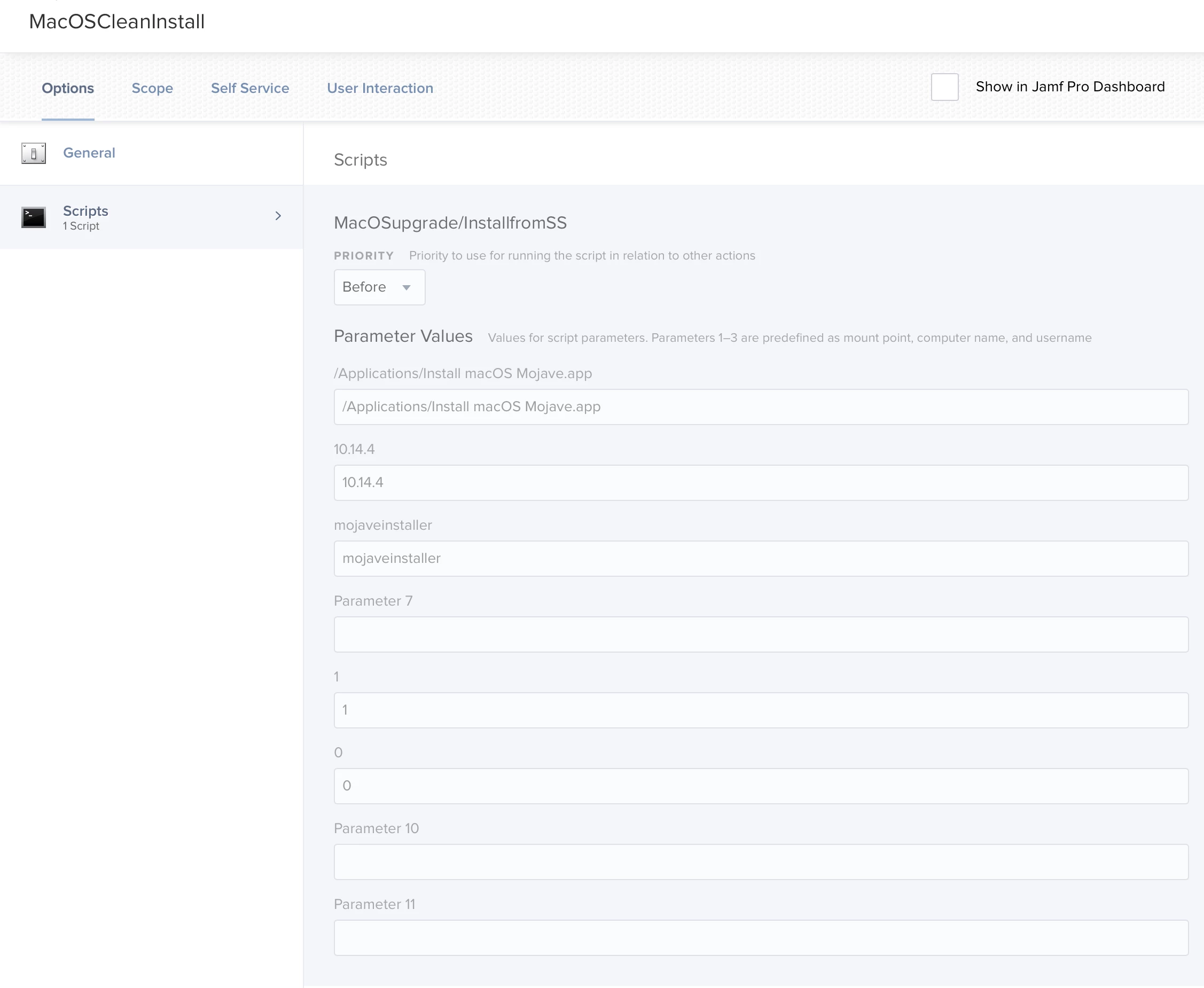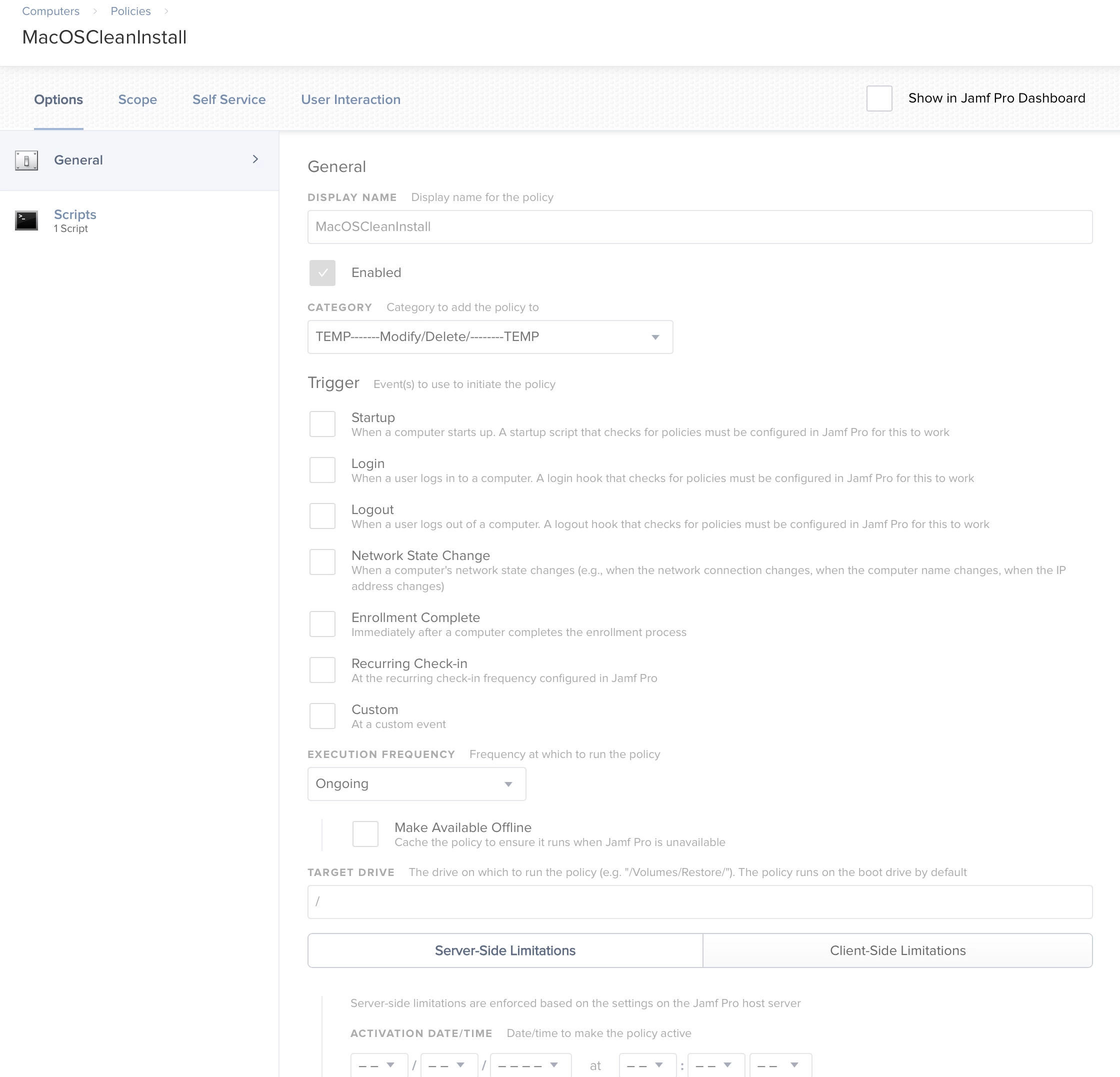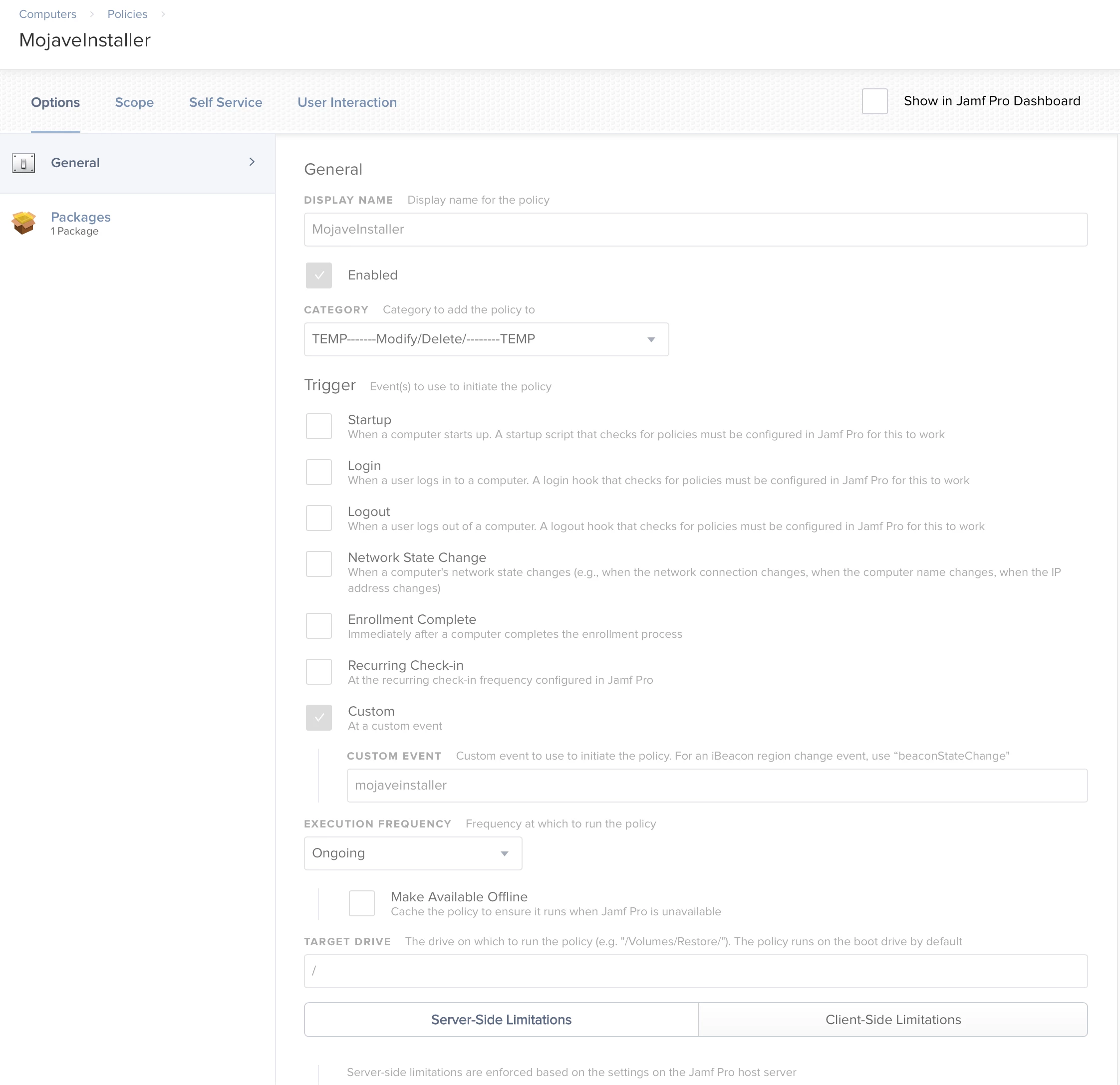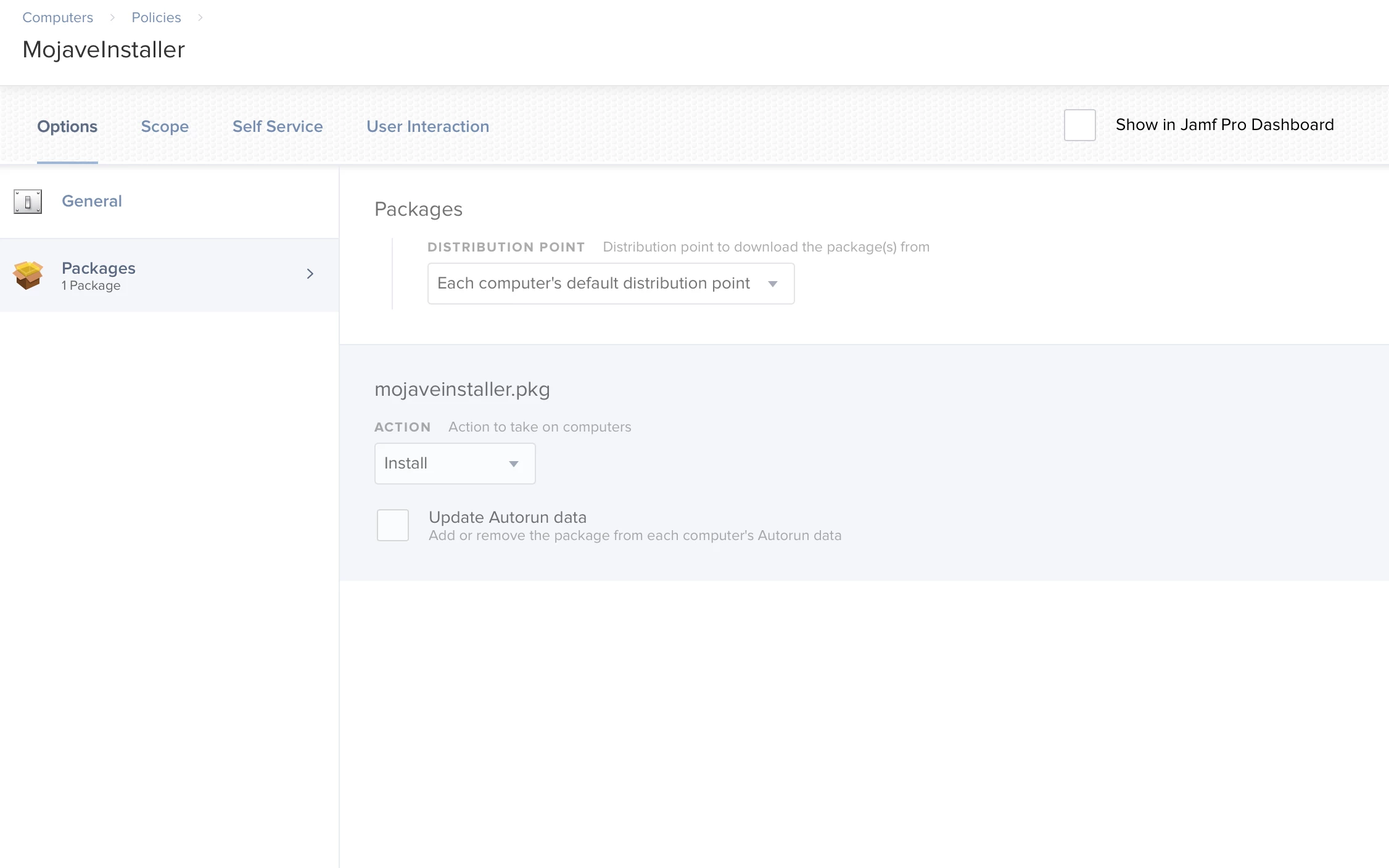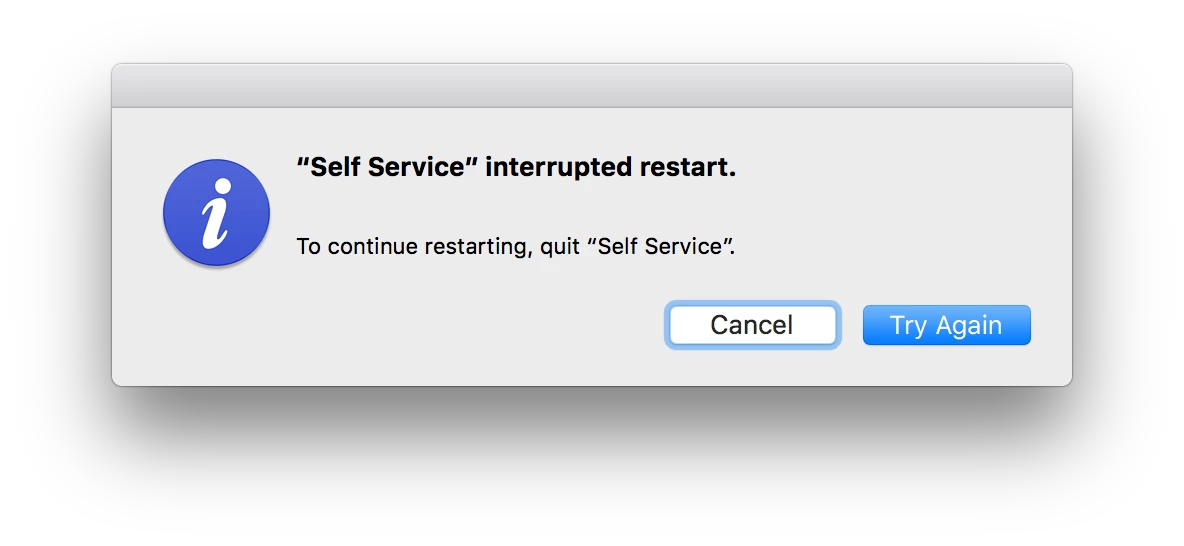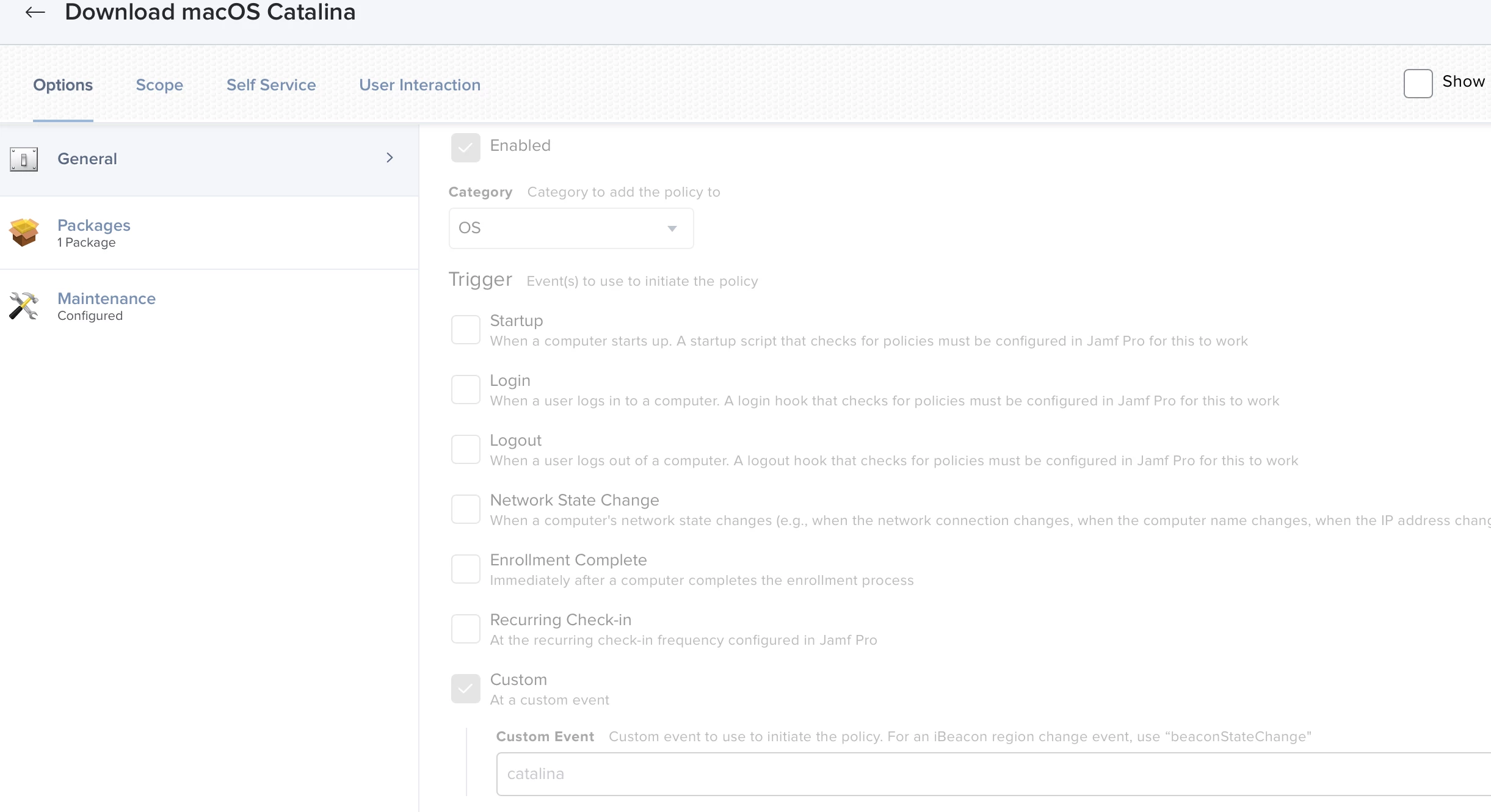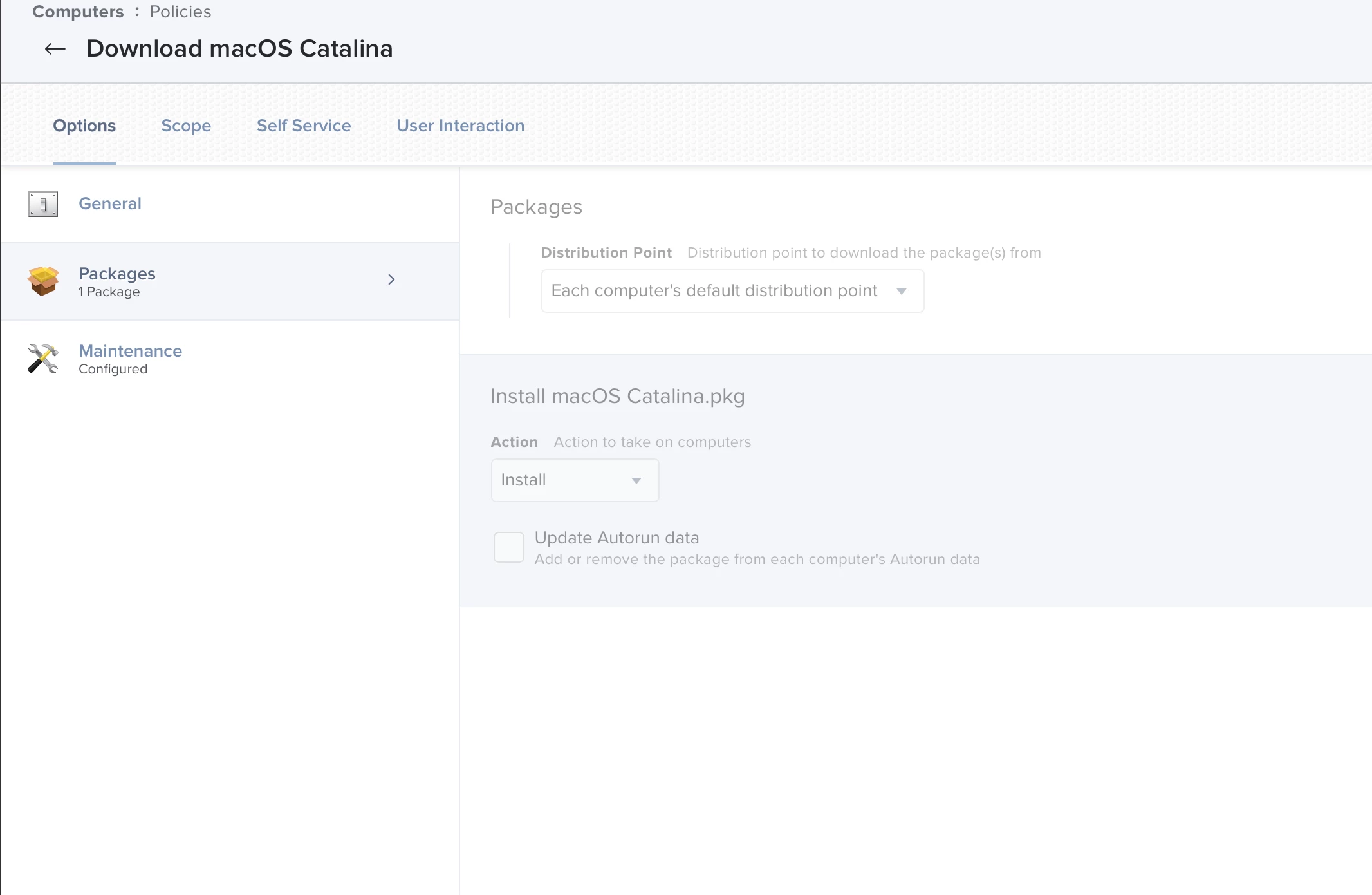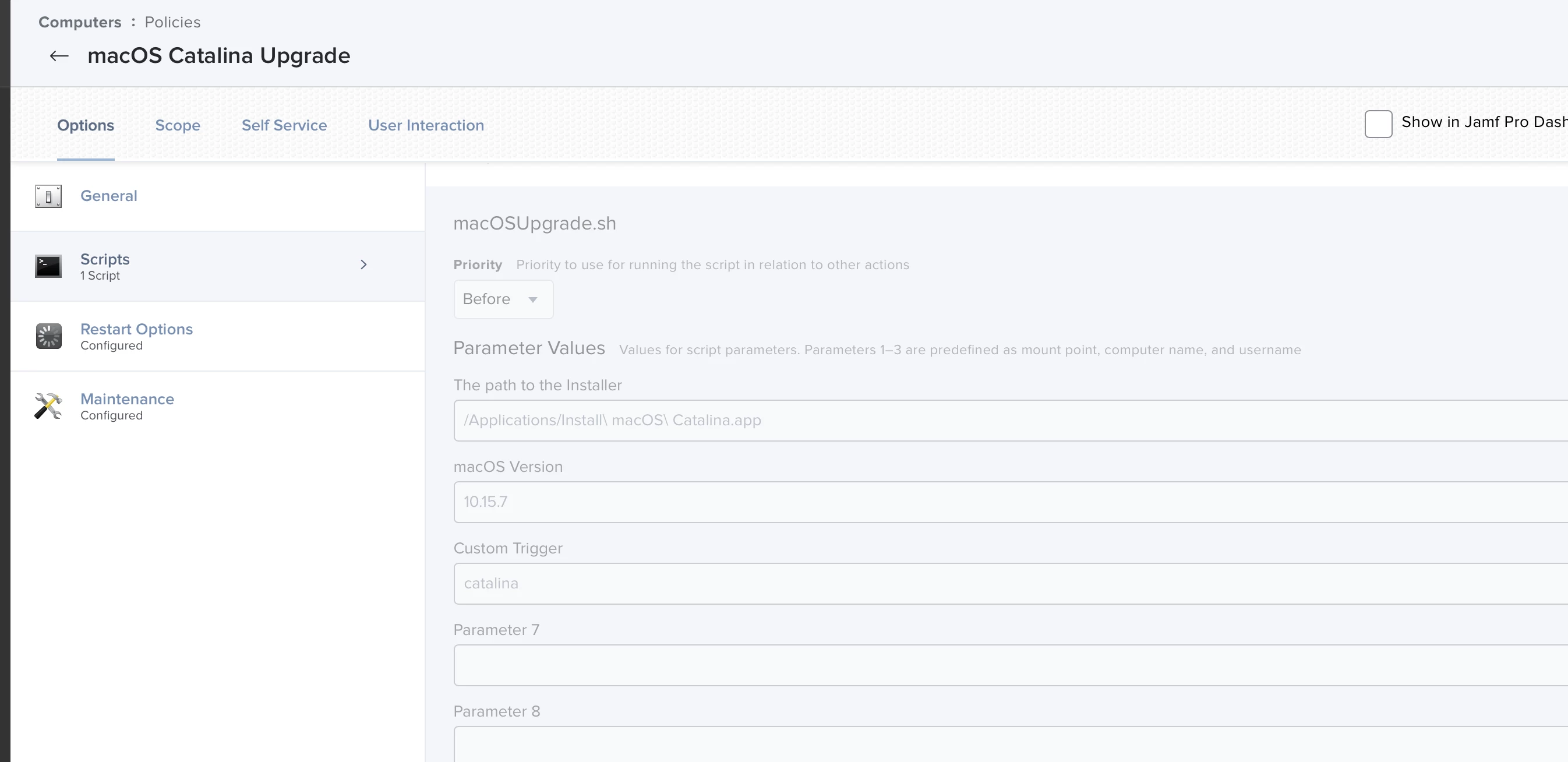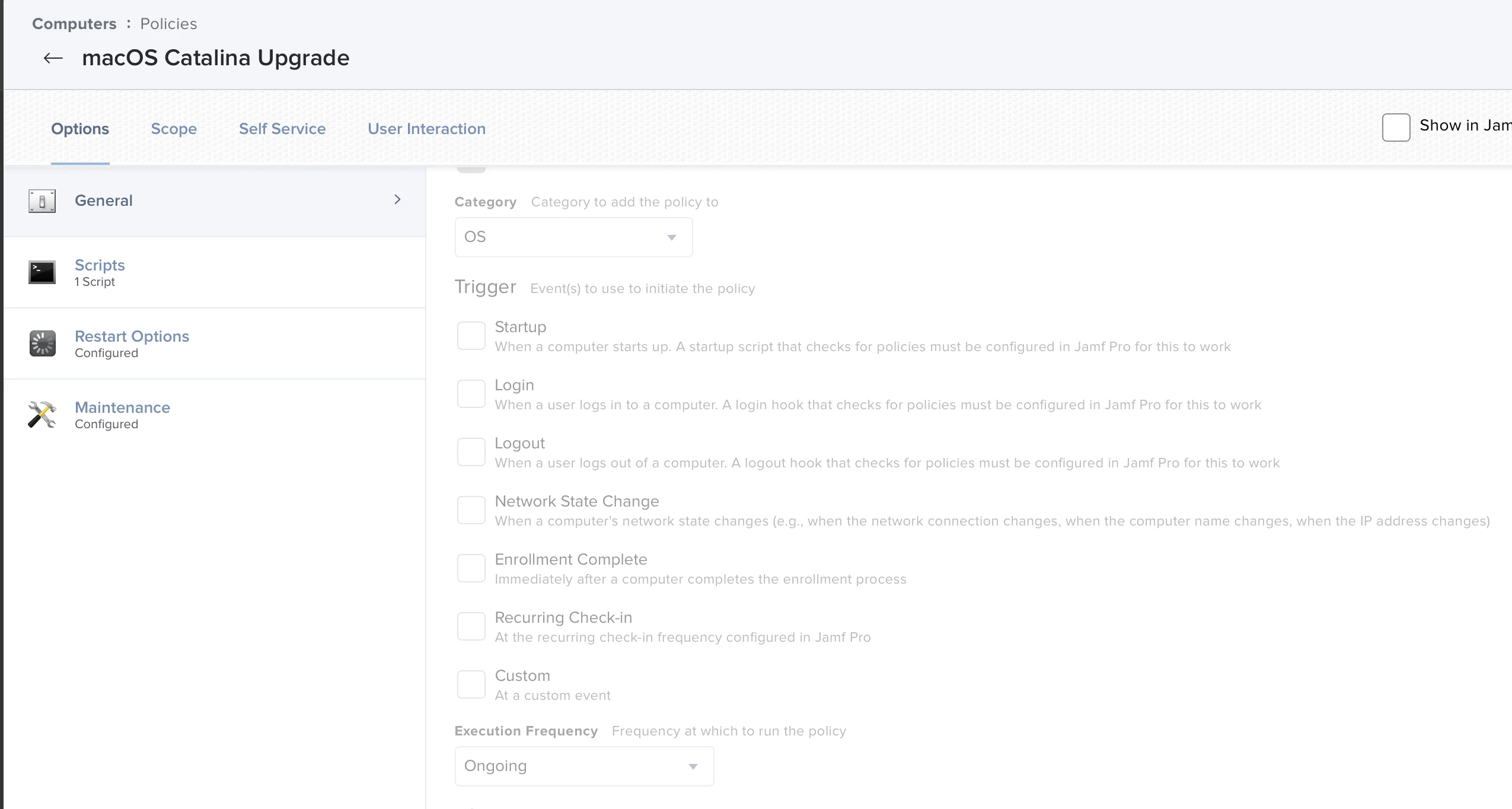Hi all, looking for some assistance with getting this....
https://github.com/kc9wwh/macOSUpgrade
working correctly. I "think" I've done all that is really required, but no go! I have the parameters set and a separate policy for the OS (Mojave) installer and is called in a parameter in the script policy.
I want to use it as a clean install, and have that set in the parameters also. The execution doesn't seem to do much of anything, no install of the OS installer, no splash screen, nothing, and the log hasn't been much help either. Typically don't have any issues with getting this stuff to work.
Any hints, advice on where to look would be appreciated!



